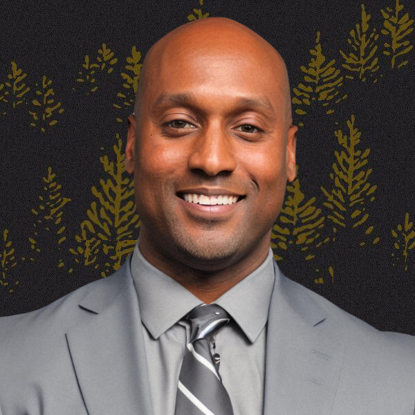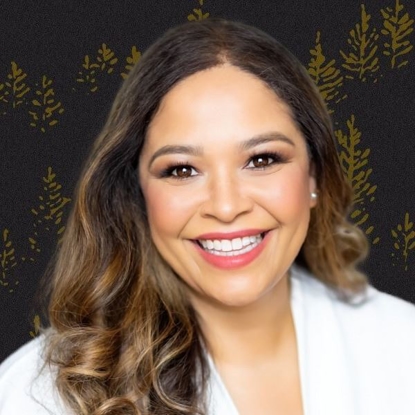
Beaverton, OR Personal Injury Attorneys
Protect Your Right to Compensation
If you've been injured in an accident that wasn't your fault, it can be a stressful and overwhelming experience. Dealing with the aftermath of an injury can be challenging, especially when you're trying to recover physically and emotionally, while also managing financial burdens. Our Beaverton personal injury attorneys of Pacific Cascade Legal are here to help you navigate these difficult circumstances. We understand the complexities of personal injury law and are dedicated to fighting for the compensation you deserve. With our experience and resources, you can start to feel confident about your future financial stability again.
Call us at (503) 217-2600 and request an initial consultation.
Types of Cases We Handle
You can rely on Pacific Cascade Legal to help with many types of personal injury claims. If you were hurt by someone else’s negligence in Beaverton, then we want to hear from you.
Our personal injury attorneys can handle a wide variety of cases, including:
- Car accidents, including those involving pedestrians, motorcycles, and bicycles.
- Truck accidents involving large commercial vehicles.
- Slip and fall accidents on someone else's property.
- Medical malpractice, including issues with surgeries, diagnoses, and treatments.
- Injuries caused by workplace accidents or exposure to hazardous substances.
Regardless of the type of injury sustained, our team will be ready to help. We can handle cases involving catastrophic injuries, like brain injuries and paralysis.
Four Elements of Liability
Not all accidents and injuries are justification for a personal injury claim. For a case to be legally sound, certain elements of liability must be proven.
The four elements of liability in a personal injury case are:
- Duty of care: The defendant had a legal obligation to act with reasonable care to prevent harm to others. For example, a driver has a duty of care to obey traffic laws and drive safely to avoid causing an accident.
- Breach of duty: The defendant failed to meet their duty of care, meaning they acted carelessly or recklessly or failed to act when they should have. For example, a driver who runs a red light and causes an accident has breached their duty of care to obey traffic laws and drive safely.
- Causation: The defendant's breach of duty was the direct cause of the plaintiff's injuries. For example, if the driver who ran the red light caused a collision that injured another driver, their breach of duty was the cause of the injuries sustained in the collision.
- Damages: The plaintiff suffered measurable damages, either physical or psychological, as a result of the defendant's breach of duty. Damages may include medical bills, lost wages, pain and suffering, and other related costs.
Personal Injury Claim Compensation
Two main types of compensation that can be owed to a personal injury plaintiff are:
- Economic damages: This type of compensation covers measurable financial losses related to the injury or accident. Examples of economic damage may include medical expenses, lost wages or income, and property damage, which can be handled in a separate property damage claim. Economic damages are tangible and can be directly calculated based on bills and receipts.
- Non-economic damages: This type of compensation covers the intangible losses that a plaintiff may experience due to the injury or accident, such as pain and suffering, emotional distress, loss of enjoyment of life activities, and loss of companionship. Non-economic damages can be more difficult to calculate, as they vary depending on the specific circumstances of each case. Courts and juries often use factors such as the severity of the injury, the plaintiff's age and occupation, and the impact on the plaintiff's future to determine the appropriate amount of non-economic damages.
Get Legal Help Today – Call Now
If you or a loved one has suffered a personal injury due to someone else's negligence, we are here to help. Our experienced Beaverton personal injury attorneys can help you navigate the legal process and pursue the compensation you deserve, so you can focus on your recovery. During an initial consultation you can learn more about your options, so please reach out today.
Contact us online or call (503) 217-2600 to get the legal help you need.
Beaverton Personal Injury FAQ
- How long do I have to file a personal injury claim in Oregon?
In Oregon, the statute of limitations for personal injury claims is two years from the date of the injury. This means that you have two years to file a lawsuit against the at-fault party to seek compensation for your damages. It is important to keep in mind that if you do not file your claim within the statute of limitations, you may be blocked from filing a claim later. - What is comparative negligence in Oregon?
Under comparative negligence, the court will compare the actions of both the plaintiff and the defendant and assign a percentage of fault to each party. This means that even if the plaintiff is partially at fault for their injury, they may still be able to recover compensation, but the amount of compensation will be reduced based on their percentage of fault. For example, if the plaintiff is found to be 20% at fault for the accident, their compensation award will be reduced by 20%. However, if the plaintiff is found to be 51% or more at fault for the accident, they will not be able to recover any compensation. - How long will a personal injury case take?
The length of time it takes to settle a personal injury case depends on a variety of factors, including the complexity of the case, the severity of the injuries, and the willingness of the insurance company or defendant to negotiate a fair settlement. In general, some cases can be resolved in a matter of months, while others may take years if they have to go to trial. It is important to have realistic expectations and work with an experienced personal injury attorney who can help guide you through the legal process and provide you with a better understanding of the timeline involved in your particular case. - What are contingency fees?
Contingency fees are a type of fee arrangement commonly used by personal injury attorneys. Under a contingency fee agreement, the attorney agrees to represent the client in exchange for a percentage of any financial recovery or settlement amount that is obtained. This means that the attorney will only receive payment if the case is successfully resolved. If the case is unsuccessful, the attorney will not receive payment. This fee arrangement allows individuals who may not have strong financial means to pay for quality legal representation. The specific percentage of the contingency fee will vary depending on the attorney and the case.

-
 About Us
About Us -
 Resources
Resources -
 Video FAQ
Video FAQ

Meet Your Advocates
Focused on Client Relationships, Integrity, Results & A Better Tomorrow
-
 Lewis Irwin Landerholm Founding Partner
Lewis Irwin Landerholm Founding Partner -
 Will M. Jones Partner
Will M. Jones Partner -
 Alan Nieczyporuk Attorney
Alan Nieczyporuk Attorney -
 Natalie Thorp Jr. Partner
Natalie Thorp Jr. Partner -
 Kimberly Brown Attorney
Kimberly Brown Attorney -
 Darin Wisehart Attorney
Darin Wisehart Attorney -
 Sarah Bain Attorney
Sarah Bain Attorney -
 Olivia Raymond-Williams Attorney
Olivia Raymond-Williams Attorney -
 Timothy Downin Attorney
Timothy Downin Attorney -
 Christy Carpenter Limited License Legal Technician
Christy Carpenter Limited License Legal Technician -
 Shanni Moore Paralegal
Shanni Moore Paralegal -
 Eryn Sisson Paralegal
Eryn Sisson Paralegal -
 Lauren Antrim Associate Manager of Finance, Human Resources & Administration
Lauren Antrim Associate Manager of Finance, Human Resources & Administration -
 Terrance Hogan Attorney
Terrance Hogan Attorney -
 Andy Kralios Attorney
Andy Kralios Attorney -
 Michael Trotter Attorney
Michael Trotter Attorney -
 Zach Santos Attorney
Zach Santos Attorney -
 Lisa Parsons Lead Paralegal / Workflow & Training Specialist
Lisa Parsons Lead Paralegal / Workflow & Training Specialist -
 Lesley Sepetoski Paralegal
Lesley Sepetoski Paralegal -
 Laura Pride Paralegal
Laura Pride Paralegal -
 Jeannette Cordova Paralegal
Jeannette Cordova Paralegal -
 Kailey Maginnis Paralegal
Kailey Maginnis Paralegal -
 Teena Quichocho Paralegal
Teena Quichocho Paralegal -
 Zulema Cornejo Paralegal
Zulema Cornejo Paralegal -
 Claudine McKague Legal Assistant
Claudine McKague Legal Assistant -
 Rachel Woleben Director of Finance, Human Resources, and Administration
Rachel Woleben Director of Finance, Human Resources, and Administration -
 Kari Landerholm Director, Marketing & Growth
Kari Landerholm Director, Marketing & Growth -
 Steve Altishin Director, Client Partnerships
Steve Altishin Director, Client Partnerships -
 Jeremy Armitage Associate Manager of Finance, Technology, and Administration
Jeremy Armitage Associate Manager of Finance, Technology, and Administration -
 Claudia Preciado Client Billing Manager
Claudia Preciado Client Billing Manager
































